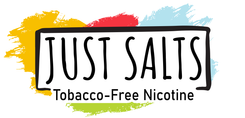The 2022 Omnibus budget bill has passed the Senate, and with it, a rider piece of legislation that expands the definition of tobacco products to include tobacco-free nicotine.
While the purpose of the Omnibus bill is primarily to allocate federal spending, many smaller pieces of legislation are often added on with the hope of getting them passed when the larger, Omnibus bill passes. Because the Omnibus bill is a large bill that Congress was under heavy pressure to approve in a timely manner, smaller bills were added, and the Omnibus bill was passed with minimal time for citizens to contact their representatives to express opinions about parts of the bill.
Once President Biden signs the bill into law, tobacco-free nicotine products will also be subject to PMTA approval, and would not have the year-long grace period originally given to vape products.
The wording in the bill is similar to HR6286,which originally introduced the idea of expanding what a tobacco product is into legislation. Most of the details from HR6286 were simply added to the omnibus spending bill.
The bill becomes law 30 days after the bill’s passage. From then on, manufacturers will have 60 days to file a PMTA for their products, unless the FDA has denied a non-synthetic version of the same products. If the FDA previously denied a non-synthetic version of the product, the products are subject to enforcement when the bill becomes law.
Tobacco companies are generally supporting this measure. Classifying synthetic nicotine as a tobacco product generally affects smaller vape companies. Many smaller companies have switched to manufacturing with synthetic nicotine to survive as the many legal battles over the PMTA process are being fought. This will hurt smaller companies, and generally decrease competition for products such as IQOS. Needless to say, this will again, be a time of lots of changes in the vape industry.


